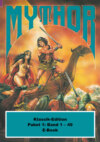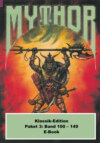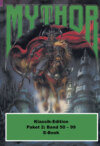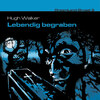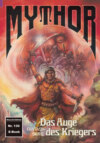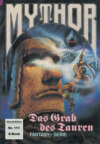Kitabı oku: «The Age of Tennyson», sayfa 13
CHAPTER IX
CRITICISM, SCHOLARSHIP, AND MISCELLANEOUS PROSE
It was a maxim of Matthew Arnold’s that the main effort of the mind of Europe in our time was a critical one. By this he meant something more than merely literary criticism; but he certainly included that. All will agree with him that one of the characteristics of recent times is the desire to understand the meaning and the historical order of the forms of literature. The great development of journalism has done much to foster critical work; for a critical view of individual men or of isolated works can be conveniently expressed within the compass permitted by the periodical form of publication. The quality of this periodical criticism is uneven. Much of it is worthless, but the fact that the best critics of the present century—Lamb, Carlyle, Macaulay, Lockhart, Ruskin and Matthew Arnold—have all written for periodicals, is proof sufficient that the best as well as the worst is to be found there.
One of the features of this journalistic criticism is its anonymity, and this doubtless encouraged the ferocity characteristic of the early school of the Edinburgh, the Quarterly and Blackwood. But the evil seems to have worked its own cure. It would be rash to assert that there is not incompetence and unfairness still; but at least the bludgeon school of criticism has passed away. The cause is twofold: the fixing of an ethical standard, and the discovery, which Matthew Arnold did much both by precept and example to spread, that the rapier is the more deadly weapon. The critics of the early periodicals had no tradition to guide them, and, like settlers in a new country, they ran riot.
A good deal of uncertainty necessarily attaches to anonymous writing, and all that is possible here is to notice shortly a few of the more eminent names, avoiding any minute discussion. Some, like Carlyle, Macaulay and Lockhart, have been mentioned elsewhere. It was however under their influence, and under the gradually growing influence of Lamb, Coleridge and Hazlitt, that the criticism of this period grew up. There has also to be taken into account the spread of German thought, which gave to criticism greater breath and a firmer foundation in principle, and conduced likewise to a more careful and patient scholarship. The Germans have not only themselves done a great work in Shakespearian criticism, but they have induced the English to do the same. Still, an exclusive following of the Germans would have led to mischief, and fortunately for English criticism this tendency has been corrected by the opposite influence of the French school. Thanks largely to Matthew Arnold, and to the charm of Ste. Beuve, whom he helped to make known in England, the lucidity, good form and sanity of French criticism have had their effect as well as the laborious learning and sometimes rash theorising of the Germans.
John Payne Collier
(1789-1883).
Shakespearian criticism might almost be said to be in its infancy when the period opened. The highest reputation was speedily acquired by John Payne Collier, whose History of English Dramatic Poetry (1831) was a really valuable contribution to the study of the drama. A later work of Collier’s however brought dishonour on his name, and threw doubt upon all his conclusions unless they could be proved from other authorities. His Notes and Emendations to the Plays of Shakespeare (1853) professed to give all the ‘essential’ readings of the Perkins Folio; but when the mystery which for a time hung over this folio was penetrated, it proved that the emendations in question were forgeries. Unfortunately these ‘emendations’ do not stand alone. Nearly all through Collier’s work is tainted with falsehood. He attempted to vitiate the old ballads as well as Shakespeare, and perhaps even now his evil influence in retarding the progress of sound scholarship is not wholly annulled.Mrs. Anna Jameson
(1794-1860). Mrs. Anna Jameson was a better writer than Collier, and she enjoys an unclouded reputation. Her Characteristics of Shakespeare’s Women (1832) still holds its ground as a fine example of the critical analysis of character. She wrote other books afterwards—Sacred and Legendary Art, Legends of the Monastic Orders, and Legends of the Madonna—but none so good as her Shakespearian criticisms.J. O. Halliwell-Phillipps
(1820-1889). J. O. Halliwell-Phillipps did great service to the study of English literature in general, especially by his elucidation of the life of Shakespeare; and Alexander Dyce deserves mention for one of the most useful editions of Shakespeare’s works. The palm for learning and research must however be assigned to the great Cambridge Shakespeare, published between 1863 and 1866, under the editorship of W. G. Clark and W. Aldis Wright. Charles and Mary Cowden Clarke likewise deserve to be remembered. The Concordance of the latter was until lately the standard work of its class, and must always remain an honourable monument of patience and thoroughness.
Sir Arthur Helps
(1813-1875).
In the sphere of general criticism, a man of great reputation in the middle of the century was Sir Arthur Helps, author of Friends in Council, a collection of social and critical dialogues and essays, published between 1847 and 1859. Many of these essays are essentially commonplace, and the book is so long drawn out that it would be intolerable, but for occasional vivid and forcible passages and epigrammatic expressions. Such, for example, are the imaginary picture of the woman taken in adultery, and the description of a great cathedral, with a thin congregation lost in a little corner of it, a bad sermon and a dull service: ‘We look about, thinking when piety filled every corner, and feel that the cathedral is too big for the religion, which is a dried-up thing that rattles in that empty space.’
There remain two writers, John Ruskin and Matthew Arnold, who are as distinctly leaders of criticism in the middle and later portions of the period, as Carlyle and Macaulay were at the opening of it.
John Ruskin
(1819-1900).
John Ruskin is an author whose multifarious activity makes it somewhat difficult to classify him. He has written on art, literature, morals, economics, society, in short, on nearly everything. He has written verse as well as prose, and the unwise enthusiasm of disciples has lately gathered together the rhymes of his youth. If however we regard Ruskin’s work as a whole, we see that its principal motive is critical, and that his criticism is mainly directed to art. This is the case with what still remains his greatest work, Modern Painters. The first volume of this book, magnificently illustrated, excellently printed, and written with an elaborate splendour of style almost unexampled in English, was published in 1843 with the simple inscription, ‘by a Graduate of Oxford.’ The fifth and last volume did not appear until 1860. The Modern Painters is easily first among all the English works that treat of painting. Its full merit can hardly be appreciated until we realise how daringly original it was; and to realise this is difficult, because of the very success of Ruskinism. The young graduate of Oxford preached a new gospel, and set himself in opposition at once to the established canons of art-criticism, and to the established philosophy of his time. In the former convention reigned supreme. ‘The man who in the pre-Ruskinian era was the high priest among connoisseurs was Sir George Beaumont; and Sir George, admirable man as he was in other respects, when he looked at a landscape, asked, not whether it was true to the facts of nature, but whether it accorded with the fictions of convention. “But where is your brown tree?” he asked of Constable when that painter gave in his adherence to the then revolutionary course of proclaiming that trees were green.’ Ruskin too proclaimed that trees were green, and no one has done more than he to vindicate nature’s right to be what she is. It was their championship of truth and their earnestness that drew him towards the Pre-Raphaelites, and made him their formidable and efficient champion in Pre-Raphaelitism (1851), as well as in many detached passages of his writings.
While Ruskin was elaborating and completing his Modern Painters, he was likewise engaged upon works bearing on the kindred art of architecture. His chief writings upon it are The Seven Lamps of Architecture (1849) and The Stones of Venice (1851-1853). His appointment in 1869 as Slade Professor of Fine Art at Oxford greatly stimulated his activity. His reputation had then reached nearly its highest point. He interpreted his duties seriously, and threw himself with ardour into the work. Quite a number of his smaller publications—among them Aratra Pentelici, The Eagle’s Nest, Ariadne Florentina and Love’s Meinie—are the outcome of his tenure of the professorship. His second tenure of office, beginning in 1883, produced The Art of England and The Pleasures of England. He moreover made himself an art-guide to travellers in Italy; and hence his Mornings in Florence and St. Mark’s Rest.
This great body of art-criticism is all bound together by a few fundamental principles; and it is perhaps his fidelity to principle, hardly less than the magnificence of his style, that has won for Ruskin a popularity denied to other critics of art. It will be useful to regard his critical work from two points of view: its rise in negation and opposition, and its issue in positive doctrine.
Ruskin, like every man who has had much to teach, begins by being a protestant. He finds that all is not for the best in the best of all possible worlds, and his effort is first to uproot what is bad, and secondly to encourage and foster what is good. The objects of his dislike have been so often denounced by him that all know what they are. Materialism, utilitarianism, a sordid industry merely concerned with the accumulation of wealth, and caring little either for its use or for the quality of the thing produced—these have been the objects of Ruskin’s life-long hatred. The merits of his method of dealing with them must be touched on later; here it is enough to notice that the motive for his work on art is the pressing need to find some foundation, other than these, for the beautiful and good. Though Ruskin was not of the Oxford movement, he was stimulated by much the same sympathies and dislikes that produced it; and it is interesting to note how Pre-Raphaelitism in art, Ruskin’s art-criticism, and the poetic and religious movements of the middle of the century, all show various forms of the same revolt against the deification of matter.
Starting with this opposition to mere material utility, Ruskin is careful always to define art so as to bring out its spiritual significance. ‘All great Art,’ he says, ‘is Praise.’ To him, art and religion, or art and morality, are not so much different things as different phases of the same thing. Beauty is measured, not by economic utility, or capacity to satisfy a material want, but rather by transcendental utility, or capacity to satisfy a spiritual want. In proportion as it embodies the conceptions of a great spirit, art is great. The artist ought to be faithful to nature, but mere imitation is not enough. Greatness consists in the something which the artist does not exactly add to nature, but rather educes from nature, the something which the gifted eye only can see, but which the gifted hand can make visible to others less splendidly endowed.
In his application of these principles Ruskin is sometimes capricious, sometimes, perhaps, presumptuous, and very often dogmatic. His caprice is visible in his changes of opinion. We find judgments pronounced in one edition of his works with the confidence of omniscience, and retracted in another with frank self-contempt, but with unabated confidence. The reasons for the one opinion seem, as a rule, just as convincing as the reasons for the other; and while all men may legitimately change their views, frequency of change ought to beget a certain amount of diffidence. That Ruskin’s criticism is sometimes presumptuous follows from its extreme confidence. He discovers the meaning of every stone in a building, and of every line and colour in a painting, in a manner hardly granted to mere man; for, after all, the most sympathetic of critics cannot enter into another man’s mind, nor can the most learned completely realise a past age. This dogmatism, though irritating, is generally harmless enough; but it is not so when it results in underrating an artist like Michael Angelo, because he will not fit into the preconceived theory, and in undue exaltation of the comparatively little, because they sometimes furnish just the illustrations needed.
From the same root springs the cognate fault of the intensely subjective character of Ruskin’s criticism. In a celebrated passage on the Jura in the Seven Lamps, after an eloquent description of the scene, the writer imagines it transported to some aboriginal forest of the New Continent. In an instant it loses all its impressiveness—to him. The reason is that the element of human association is lost; and he instantly jumps to the conclusion that this element is an essential part of the charm of nature to all. Few will dispute that such association is to many an important factor in the delight in nature. But this has not been a universal feeling. Some travellers, like Darwin on the Cordilleras or in the Brazilian forests, have felt, in the midst of untrodden solitude and unbroken desolation, a sense of the sublime nowhere else to be experienced.
That which, in spite of faults, gives Ruskin’s art-criticism its superiority over all rivals is, in the first place, the fulness of knowledge whence it springs, and, in the second place, the magnificence of the style in which it finds expression. Ruskin’s continental travels in early manhood gave him an acquaintance with the best models, such as could not otherwise be acquired. He was moreover himself an artist, capable of good and accurate, if not of great work, and aware of what is possible and what is not possible in art; and his steady confidence in the existence of an inner meaning and a serious purpose in all art worthy of the name saved him from the thinness of substance and the dilettante trifling too apt to be seen in writings of that class.
But it is, first of all, beauty of style that the name of Ruskin suggests. His prose has been lauded as the finest in the English language. The English language contains so much that the absolutely finest is not easy to discover; nor will men ever agree as to the relative merits of simple and of ornate styles. There is not a little to be said for Oliver Goldsmith, even as against John Ruskin. The latter writes what is known as ‘poetic prose;’ and in doing so, though he is no mere imitator, he follows in the footsteps of men like De Quincey, who sought to obtain by prose effects commonly associated with poetry. This was in part a reversion, but a reversion with a difference. The eighteenth century had evolved a clear, direct, simple structure of sentence, well adapted to appeal to the understanding. It was not unfitted too, as many passages in Addison and Steele and other acknowledged masters prove, for an appeal to the emotions. Nevertheless, this was its weak side; and just as the lucid, bright, highly intellectual verse of the eighteenth century gave place to poetry more emotional and more varied, so the prose of the eighteenth century had to receive its complement in a prose more ambitious in design, more complex in structure and richer in tone. It was romanticism overflowing, as it were, the bounds of verse. The change was not so much the introduction of something wholly new as the grafting of old tendencies on a new stock. The complex structure and involved harmonies and wealth of imagination which the new writers hungered for were to be found in the prose of Milton and of Jeremy Taylor. On the other hand, the type of sentence established by the eighteenth century writers was too sound to be set aside. It remained the basis, while the older magnificence and daring were brought back and wedded to it.
Of this type of poetic prose Ruskin is the acknowledged master. Others, like De Quincey, have rivalled, and perhaps equalled his best passages. But excellent passages in De Quincey are much rarer than in Ruskin. The latter has built upon a broader foundation. All the field of nature and great part of the field of knowledge have been his. Ornate prose tends to be descriptive; and in his descriptions Ruskin has, over the mere literary man, the great advantage which the study of art gives. He had been educated to observe, and he naturally saw more than others who, even if they possessed equal sensibility, had less of this special culture.
Next in importance to his art criticisms must be ranked Ruskin’s writings on social subjects. Here his interest has been keen and his energy great. Most of his special ideas have been denounced as Quixotic nonsense, and some of them, it must be added, deserve a description not much more flattering. Yet great is the merit of earnestness. Ruskin has always been fired by indignation against wrong and falsehood, and has always believed profoundly in the truth of his own gospel. He has had, both as a writer and as a man, the gift of fascination. Hence, even when his audience was scanty, it was enthusiastic; and few, whose ideas seem so unpractical, have succeeded in persuading so many to try them. The story of his inducing his Oxford pupils to engage in road-making is well known. The fact that the road was and is, as he laughingly admitted, one of the worst in the three kingdoms, does not weaken its testimony to his personal influence; though it may throw doubt on the wisdom of his guidance. In a similar spirit he founded the St. George’s Guild. This however was no mere by-work. It was the direct outcome of his writings on social questions, and it was more remotely connected with his teaching of art. It was connected with the latter through his conviction that only to a people living wholesome lives is sound art possible. It was connected with his social writings because his studies for them convinced him that mere writing would do little to cure the evils he saw. Hence in the Fors Clavigera in 1871 he launched the scheme of the St. George’s Guild. The idea was to restore happiness to England. ‘We will try,’ said he, ‘to make some small piece of English ground beautiful, peaceful, and fruitful. We will have no steam-engines upon it, and no railroads; we will have no untended and unthought of creatures on it; none wretched, but the sick; none idle, but the dead. We will have no liberty upon it, but instant obedience to known law and appointed persons; no equality upon it, but recognition of every betterness that we can find, and reprobation of every worseness.’ It is not surprising that plans so visionary have failed to regenerate society; it is surprising that men should have been willing to join in the effort to realise such a Utopia. The agricultural ventures of the Guild are an admitted failure; one or two of the efforts to plant village industries have had some measure of success, and seem capable of doing good within narrow limits.
Prominent among the faults of Ruskin’s social writings is a disregard of practically unalterable facts. Railways and steam-engines may not be objects of beauty, but until they find swifter means of locomotion and production men will use them. To regulate their use and to reform abuse would be the ideal of the practical social reformer. Denunciation and banishment are the cures which occur to Ruskin. Similar faults mark his extremely eccentric political economy; as for example his condemnation of interest on capital and his ascription of property ‘to whom proper.’ This would be attractive if we could only find some one to tell us infallibly, or with some approach to infallibility, to whom it is proper. Historically, the stronger man has generally proved the person ‘to whom proper.’ The condemnation of competition and the praise of co-operation are open to a similar objection. They ignore the facts of human nature. There is doubtless room for valuable work in promoting co-operation and in regulating competition; but no worse service could be done to the human race than to supplant the latter. Fortunately, no effort is more hopeless: it is like that sin which Macaulay declared would be unspeakably shocking if it could be committed, but which, happily, Providence had not put within the reach of fallen humanity.
Ruskin’s economic and social writings are certainly not to be valued for soundness of thought or for sobriety of judgment. They have however the beauty of style which characterises all his works, they are enriched with memorable sentences and weighty sayings, and they are inspired by a nobility of purpose which redeems even the most indefensible doctrine. Unworkable as his economic principles are, it is impossible to withhold admiration from the man who has so generously endeavoured to carry them out; and however numerous may be his crotchets, the laugh at them must be kindly when he has himself so genially led the laughter. It is moreover only just to say that, however unsound his own views may be, he was one of the first to point out the unsoundness of the old political economy. There is no answer to his contention that a science so abstract, a science which leaves out of account so many considerations essential to human welfare, has no right to pronounce authoritatively upon it. The modern economist would agree with Ruskin that we must reintroduce the factors eliminated before we can draw conclusions trustworthy for practice.
Matthew Arnold
(1822-1888).
Matthew Arnold rose into prominence as a critic somewhat later than Ruskin, and he did his work in a different sphere. He has the unusual distinction of being almost equally celebrated in prose and in poetry. There are numerous writers who have won a considerable, and some even a great reputation in both; but generally, as in the case of Scott, there is no difficulty in subordinating the one to the other. In Arnold’s case there is a difficulty, and though the prediction may be ventured that he will in the end take rank as a poet, he is probably best known at present as a writer of prose.
Matthew Arnold was educated at Winchester and Rugby. He went up to Balliol College, Oxford, in 1841, and won a fellowship at Oriel in 1845. In 1851 he became inspector of schools. Besides his ordinary routine work as inspector he discharged the important duty of visiting and reporting upon the schools and universities of France and Germany. From 1857 to 1867 he was professor of poetry at Oxford. In his later years he made two visits to America, where also he lectured. He afterwards published the addresses under the title of Discourses in America.
The prose writings of Matthew Arnold may be classed under three heads. They are all critical in spirit. In the first division the criticism is of literature, in the second of theology, in the third of society. As regards their chronology, the literary criticism is mainly the product of the decade between 1860 and 1870, but from time to time all through his literary career Arnold wrote criticism. In theology the period of his greatest activity was from St. Paul and Protestantism (1870) to Last Essays on Church and Religion (1877). Social essays, including the educational writings under this head, are interspersed all through, but the period of greatest activity, as regards publication, was from the Mixed Essays (1879) to the Discourses in America (1885). In respect of merit these writings can also be classified with confidence. The literary essays are unquestionably the most valuable, the social essays rank next, while the theological works have the least permanent worth.
Arnold’s critical work may be said to begin in his poems, and these for the most part precede his prose writings. It may be doubted whether any English poet has written as much fine criticism in verse as Arnold. Besides the penetrating judgments on individual writers, like Goethe, Wordsworth and Heine, we have a discussion of the principles of art in the Epilogue to Lessing’s Laocoön and, throughout, a critical view of life as well as of literature. The volume of poems published in 1853 contained moreover a critical preface in prose, short but highly suggestive. When therefore Arnold was appointed Professor of Poetry at Oxford, he was already a critic of proved capacity, and he fully justified his appointment by the lectures On Translating Homer (1861), certainly the most valuable ever delivered from that chair. But most of Arnold’s critical work was originally written for periodicals; and the scattered essays, gathered up into volumes, are known to the world as the Essays in Criticism (1865) and the Essays in Criticism: Second Series (1888). These, with a few essays scattered through other volumes, constitute the body of Arnold’s critical work. What is its spirit and method?
To comprehend Arnold as a critic we must grasp his conception of culture. His aim is to know the best that has been thought and said in all ages and by all nations. No criticism was ever less negative. He sees indeed that the pointing out of deficiencies, indirectly if not directly, is an essential part of criticism, but it is not the end in view. Again, Arnold’s purpose is always practical. He was long regarded as a dreamer, a ‘superior person’ sitting on a solitary height and on the whole proud of the isolation. On the contrary, it was just because he was at heart essentially English, and therefore practical, that he acquired this reputation. Two of his favourite dogmas in criticism were the necessity of going back to and studying the classics, and the equally crying necessity of going beyond our own island and studying the mind of Europe. He was never content unless he brought English opinion to the test of foreign opinion. Hence his interest in knowing how Milton appears to a French critic. For a similar reason he frequently went to foreign writers for the subjects of his own criticism. In the first series of Essays in Criticism, the most characteristic and the most valuable, as a whole, of his critical writings, the subjects are principally foreign—the two de Guérins, Heine, Joubert, Marcus Aurelius. He turns to these, not because he thinks them better than the writers of his own country, but because he thinks more good will come, both to himself and to England, from an investigation of what is foreign and unfamiliar, than from an examination of writings illustrating our own merits and charged with our own defects. The impulse which determines his choice in criticism is revealed in his Letters. He condemned Carlyle in England and Gambetta in France, each for ‘carrying coals to Newcastle;’ Carlyle, because he preached earnestness to a nation that already had enough of it, but was not equally endowed with other good qualities; Gambetta, just because he evaporated in words and failed to teach that very earnestness to a nation that would have been all the better for more.
The same principle explains Arnold’s insistence on the study of the ancients. ‘They can help to cure us of what is … the great vice of our intellect, manifesting itself in our incredible vagaries in literature, in art, in religion, in morals: namely, that it is fantastic, and wants sanity.’ It was for this reason that he dwelt on things distasteful to his countrymen, or to whomsoever he was addressing. He was eager to carry the coals of Newcastle where they were needed, the earnestness and practical sense of England to France, the lucidity of France and her love of ideas to England. This, combined no doubt with personal taste, accounts for his devotion to French literature. No one saw French weaknesses more clearly,—‘France, famed in all great arts, in none supreme.’ But irrespective of the relative merits of French and German writings, he thought the Germans a bad model for the English to follow, and the French a good one, because they, a race of Latin culture, differ from us more than another branch of the Teutonic stock can do. So too, in his eyes, the highest value of the classics is just that they present us with ideals unlike our own. ‘We can hardly at the present day understand what Menander meant when he told a man who inquired as to the progress of his comedy that he had finished it, not having yet written a single line, because he had constructed the action of it in his mind. A modern critic would have assured him that the merit of the piece depended on the brilliant things that arose under his pen as he went along.’ The width of the difference measures the value of the lesson to be learnt.
We can thus understand the seeming eccentricity, sometimes, of Arnold’s choice of subjects, and also the superficial appearance of negation in his criticism. It is only superficial; the essence of the criticism is always sympathy, agreement rather than difference, the recognition of merit in preference to censure for defects. Carlyle had already placed criticism on the basis of sympathy, but it was shown in a different way. Carlyle had a large share of the dramatic faculty, and an intense interest in the individual soul. Arnold’s genius was social, but not dramatic. He had no such mastery as Carlyle of the springs of individual character; but he set himself to understand the society in which the man lived, to grasp his idea, to look at things from his point of view, and so to explain what otherwise would be inexplicable. It is the fruitfulness of Arnold’s method that has made the reading of the Essays in Criticism an epoch in the lives of many men who have now reached middle life.
Equally high praise must be accorded to the temper of this criticism. No writer was ever more uniformly urbane than Arnold. ‘The great thing is,’ says he, ‘to write without a particle of vice or malice;’ and he never forgets his own precept. He often gave rise to controversy, and was sometimes the object of vituperation; but, though he could write with cutting irony, the controversy was never on his side embittered, and he never replied in kind to the vituperation.

